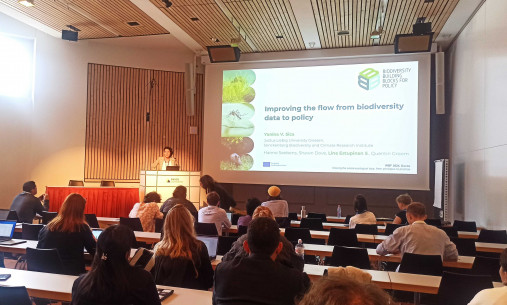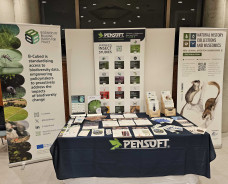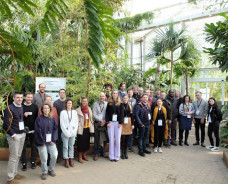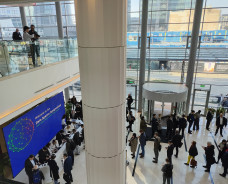From 16 to 21 June, Davos, Switzerland, hosted the 3rd World Biodiversity Forum (WBF), gathering researchers, practitioners, and societal actors to discuss solutions for biodiversity conservation and sustainable transformation. Several partners from B-Cubed also participated in the event, sharing their research and insights about the project.
Yanina Sica from JLU introduced B-Cubed in her presentation “Improving the flow from biodiversity data to policy”, focussing on her work on European and Global policy analysis and stakeholder consultation. She highlighted challenges such as difficulties in extracting and harmonising species data from non-tabular species lists in European policies and the overwhelming number of indicators lacking clear metadata at the global level. Furthermore, Yanina presented B-Cubed’s developments, including data and modeled cubes, as potential solutions.
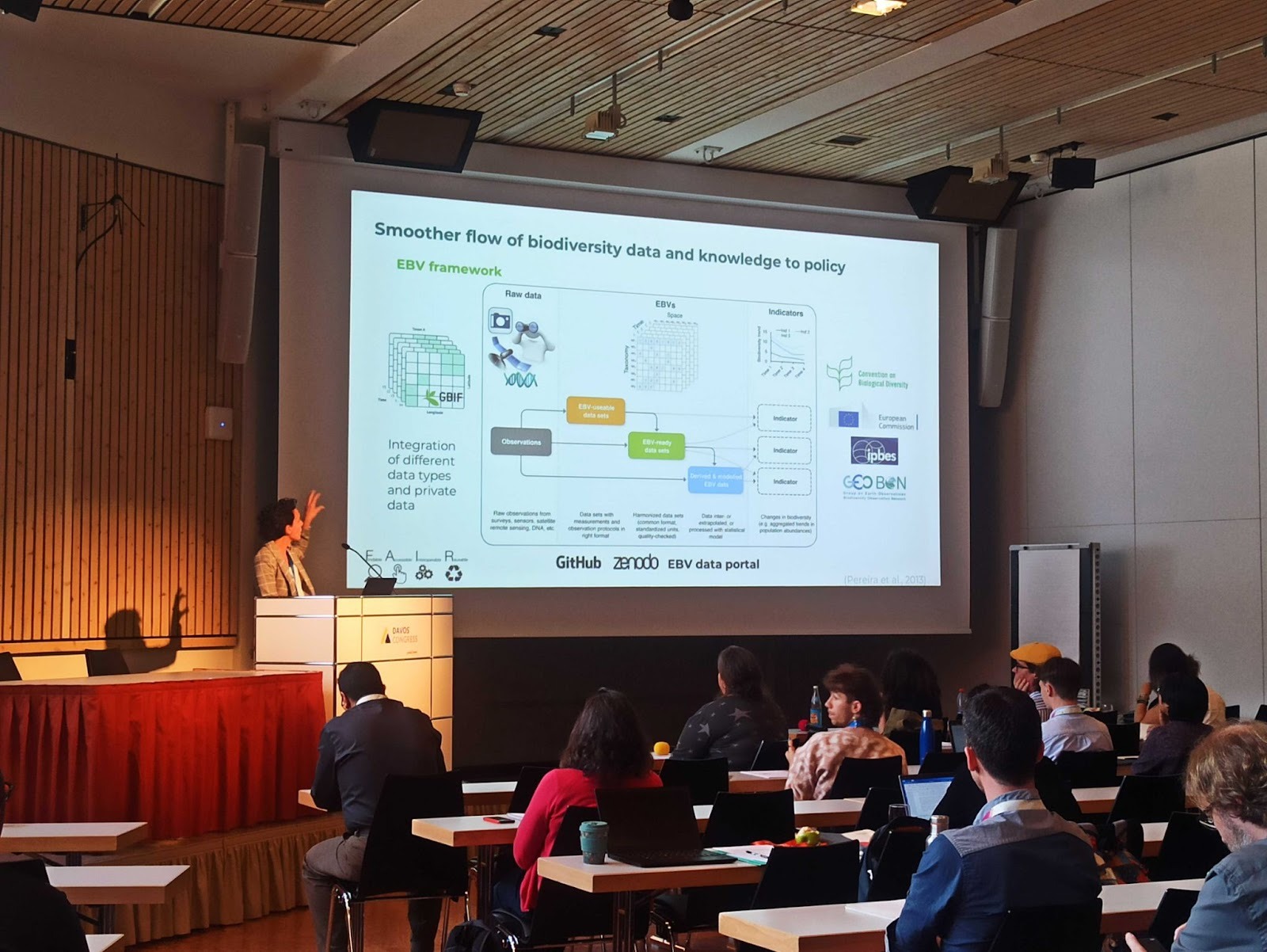
Yanina Sica presenting at the WBF
Rocio Beatriz Cortes Lobos from UNIBO presented a poster titled "What a cliché: the impact of spatial bias on modelling species distribution", which is based on her PhD work related to B-Cubed. Her research focused on how sampling bias affects Species Distribution Models (SDMs), comparing two datasets – one sampled perfectly and the other - biased – demonstrating that the biased dataset led to a less accurate environmental map and misrepresented the species' ecological niche.
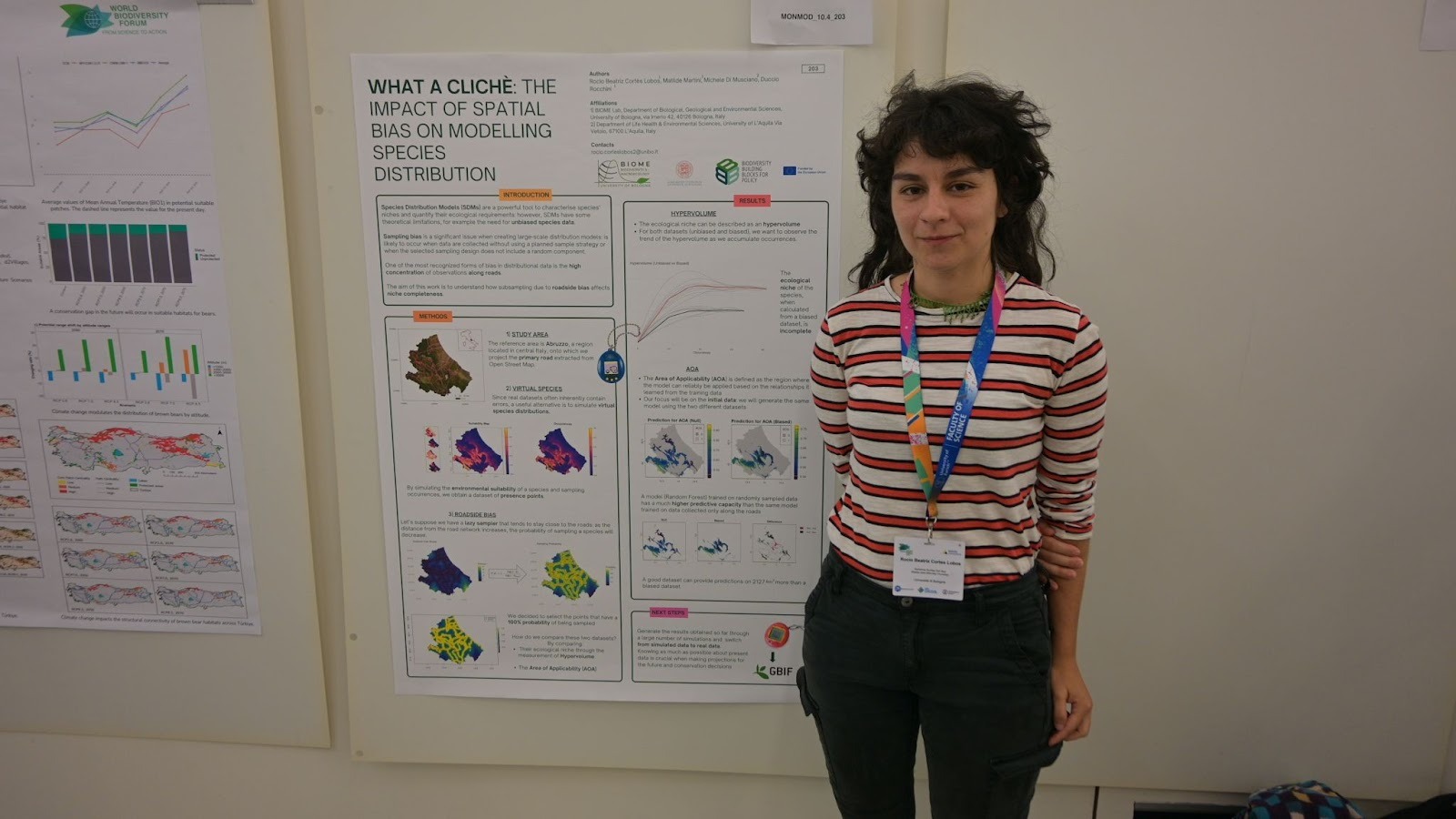
Rocio Beatriz Cortes Lobos with her poster at the WBF
Both Yanina’s presentation and Rocio’s poster received positive feedback and interest, sparking discussions with researchers and possible future collaborations with other EU projects.
B-Cubed was also present at Pensoft’s stand – the communication and dissemination partner – with project materials available, such as brochures and stickers.
The participation of B-Cubed in the WBF highlighted the ongoing efforts to address challenges in biodiversity conservation through scientific research and policy alignment. The conference provided an opportunity for our partners to share their work and engage with the broader biodiversity research community. Learn more about WBF here.
